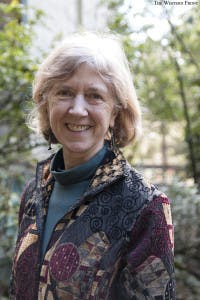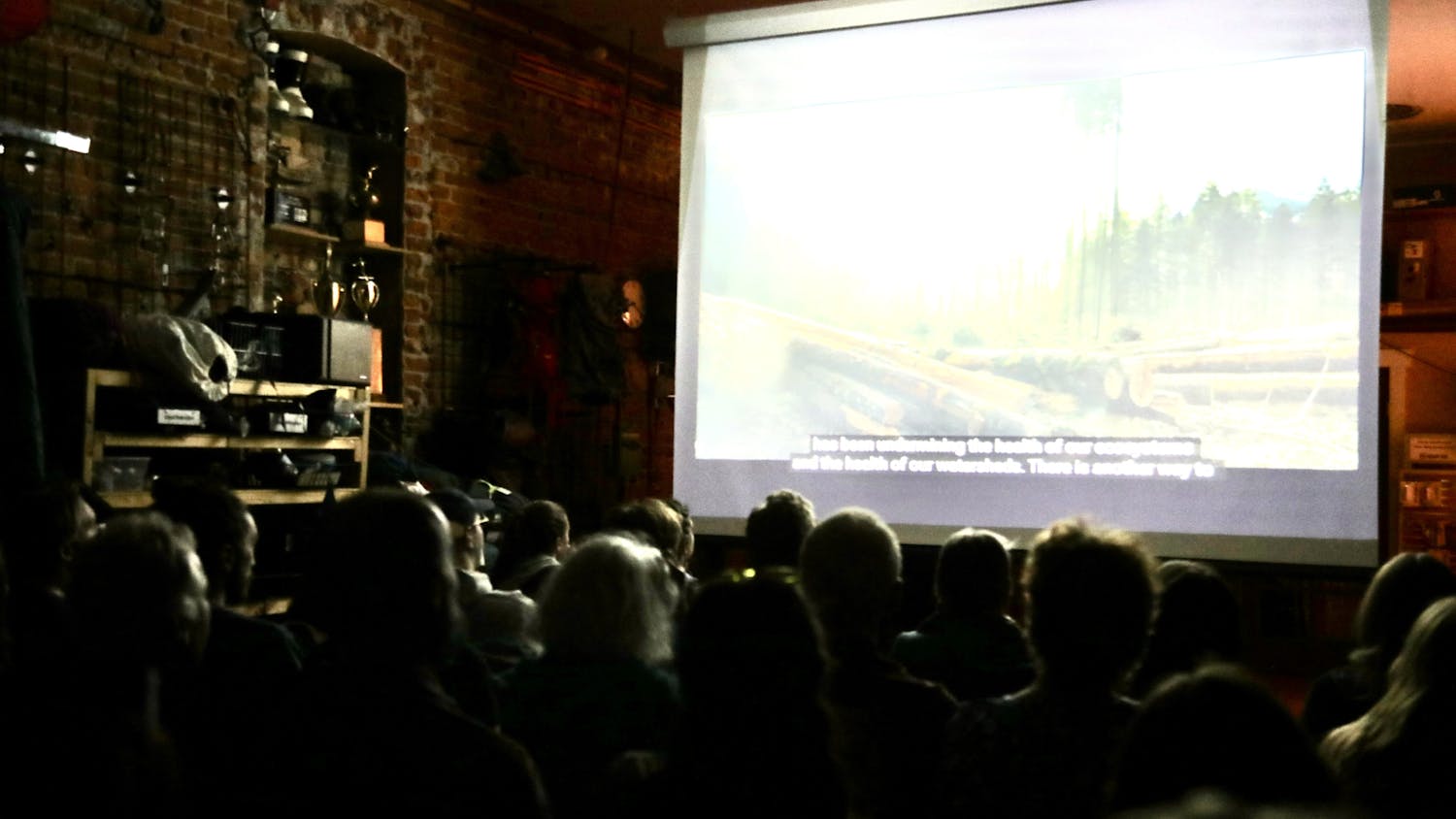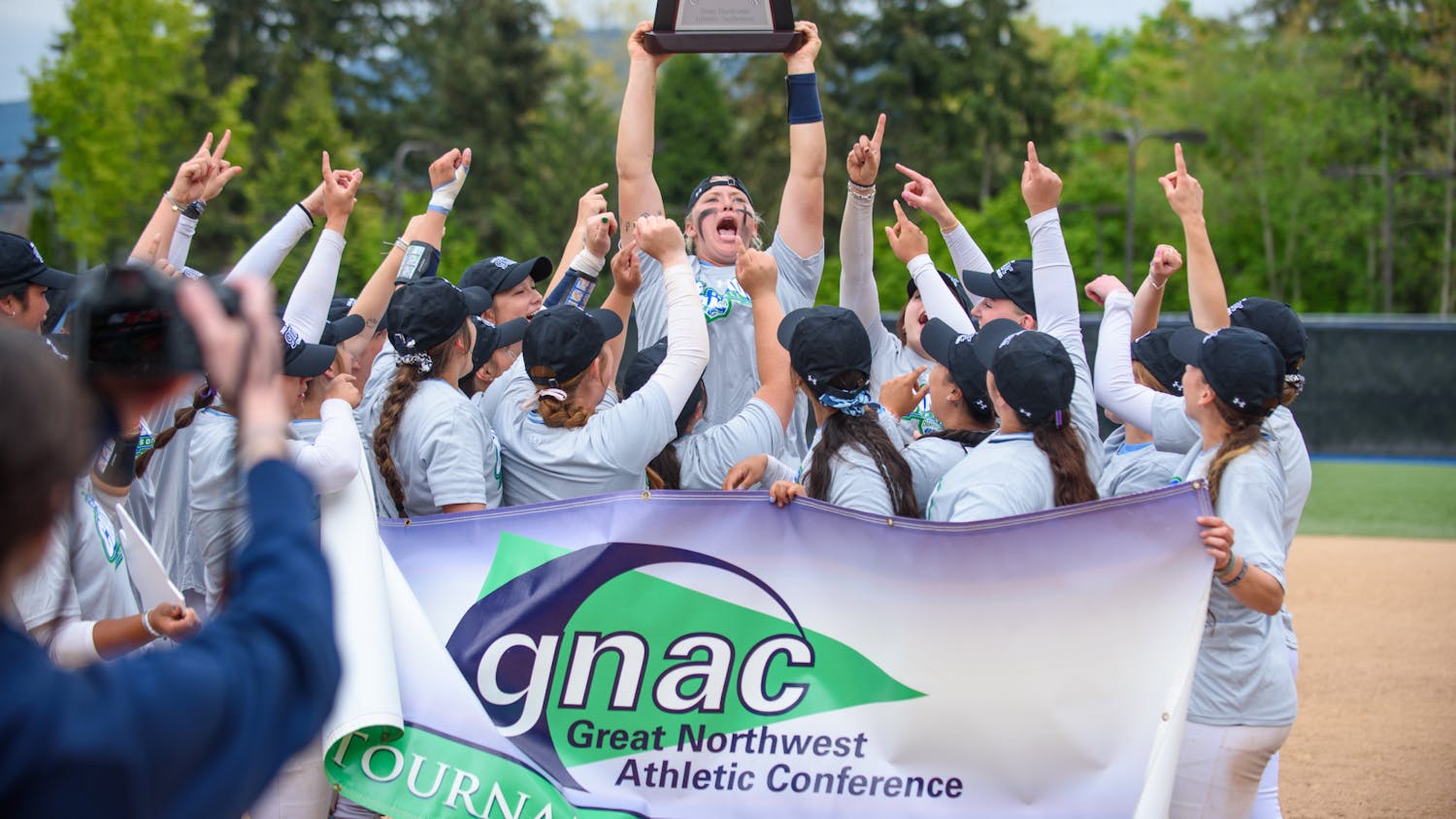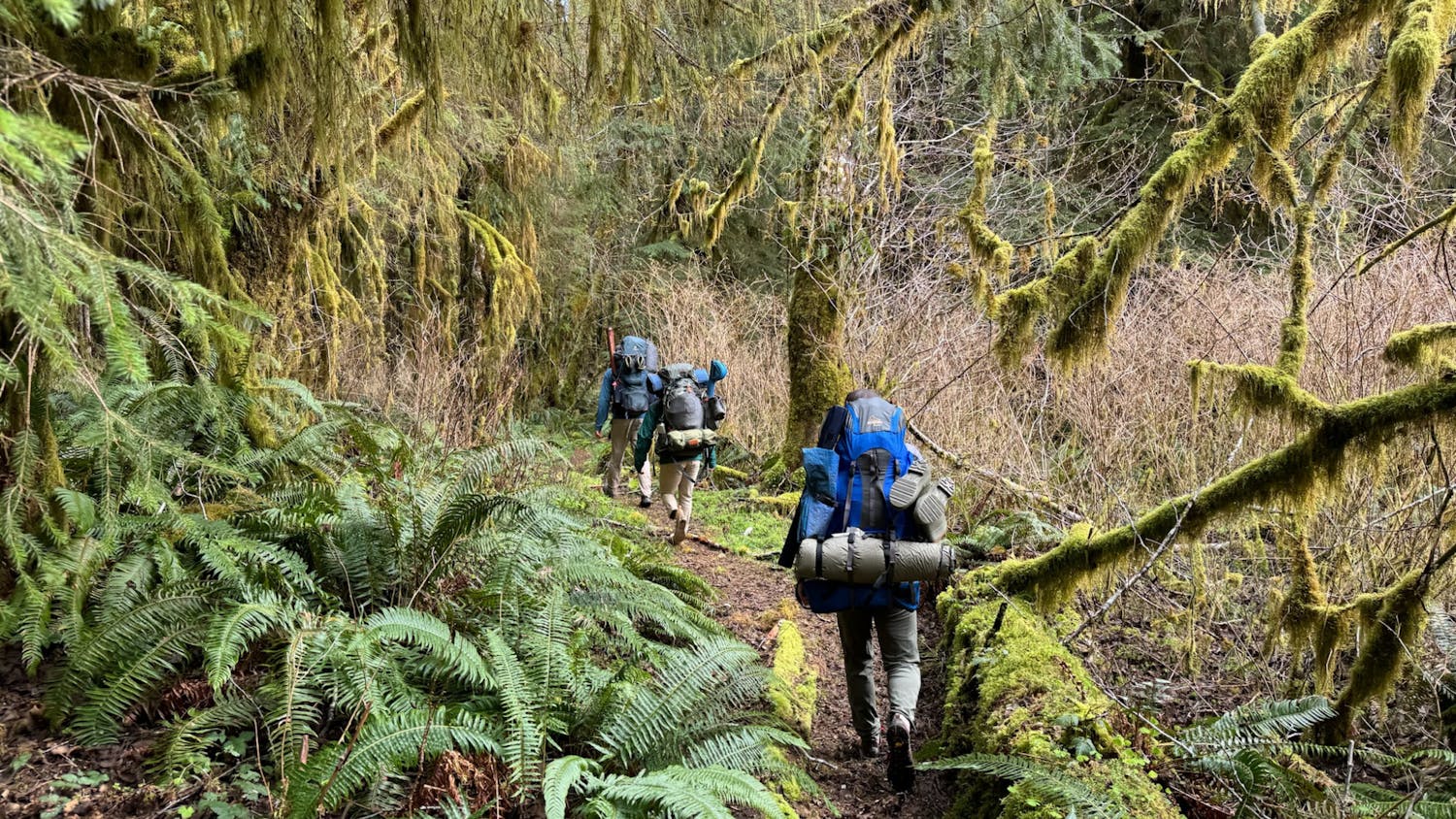Fairhaven professor Shirley Osterhaus lives a life of activism
Despite facing resistance from the United States government, Shirley Osterhaus has lived a full life of activism, from being involved in anti-war protests during the Vietnam War to transporting refugees from Central America into Canada.
Osterhaus’ activism has resonated with her even before she became a professor at Western. As Osterhaus shared her story of involvement, she spoke with certainty and determination about her involvements. She smiled brightly as she spoke of the triumphs she has witnessed within her activism.

Being born and raised in a large family with 10 children on a farm in Iowa, Osterhaus said her childhood is one of her influences on her lifetime of activism.
With Osterhaus’ office being adorned with posters of upcoming events and organizations, as well as pictures of such interactions, it’s clear that activism is an essential aspect of who she is both in and out of the classroom.
“I grew up with a strong sense of the community. We all worked on the farm together, we all had our role in it. I think because of a large family, I grew up with a pretty strong sense of… fairness,” Osterhaus said about her childhood.
Osterhaus said that growing up on a farm in Iowa meant living off of the land sustainably during her childhood and caring for the environment.
“Living off the land certainly developed my sense of respect and care for the earth,” Osterhaus said. “It's deep in my bones to really take care of the earth. I have a strong environmental justice at this point too. Along with human rights, I always like to say earth rights.”
Osterhaus received her bachelor’s degree at Briar Cliff University and her master's degree from Boston College.
Western freshman Xana Gilman, a teacher’s assistant for the World Issues Forum, said Osterhaus is just as willing to learn as she is to teach.
“She does this thing in the beginning of class and I think it’s pretty admirable. She goes, ‘I’ll tell you what I know, you tell me what you know and we’ll all know more together.’” Gilman said.
In the 1960s, Osterhaus was involved in resisting the Vietnam War after several of her friends were killed while away at war.
In the 1980s, Osterhaus became heavily involved in Central American Solidarity Movement. She moved to Bellingham in 1984 after getting a job in the Catholic Campus Ministry. She did some adjunct teaching in the 1990s, and has been apart of Western consistently since 2001.
“I think I've always been an educator-activist,” Osterhaus said as to what got her into teaching.
Osterhaus said she played a major role in the Sanctuary Movement in the United States. The Sanctuary Movement was a non-violent movement that arose due to the United States' support of the wars in El Salvador and Guatemala. They supported refugees that were not given asylum by the United States government. The movement was supported by churches, synagogues and even some universities and cities.
“It was a strong statement of conscience saying that we know these people deserve to have the right to safety in a third country,” Osterhaus said.
Following the movement, Osterhaus taught a course at Western that discussed the movement where she brought in different speakers including refugees and lawyers to provide insight into the situation.
Osterhaus traveled to El Salvador, Guatemala and Nicaragua several times during these movements to hear the experiences from the people who were experiencing the wars first hand.
“My experience of being with them multiple times, being in the refugee camps with them...They really showed me the courage that they had in the face of such oppression. The resiliency and the resistance...they just changed me,” Osterhaus said of her travels to war zones.
Osterhaus became involved in the Franciscan community, a group of women within the Catholic church who focus on the needs of the poor, following in the footsteps of St. Francis of Assisi.
Osterhaus is a founding member of the Central American Refugee Assistance, who were involved with the “underground railroad,” which moved Central American’s into Canada for asylum between the years of 1985 and 1992.
Osterhaus said she was aware of the resistance she would face with the government in her actions during her involvement in the refugee assistance organization. What she was doing was considered a felony.
“During that time my car did get seized by the immigration because I was transporting a family of Guatemalans,” Osterhaus said. However, she was not prosecuted.
Osterhaus said after The Peace Accords were signed in 1992, the refugee assistance organization became the Bellingham-El Salvador Sister City Organization, a national organization where communities in the United States were paired up with a city in Central America to help aid in their recovery after the wars ended.
Osterhaus focused attention on the Israeli-Palestinian conflict, wondering once again what truths she was not being told and traveled to Palestine. Even today, Osterhaus incorporates her experiences to teach her students about the reality of the conflict, which is not available to us by the media.
She was a founder of the Whatcom Human Rights Task Force, founded in 1994, a movement against actions by the white supremacist militia camp in Hayden Lake, Idaho which had influence over parts of the northwest including Whatcom County.
After the 9/11 terrorist attacks, Osterhaus said many students returned with questions about the attacks, terrorism and world events. In response to these questions, the World Issues Forum came about in 2001.
The World Issues Forum is a class which is open to the community, in which speakers come from all over to discuss human rights issues, educating students about the ongoings in the world.
Gilman said Osterhaus helps students feel comfortable with learning.
“I think she just pushes you to realize that it's a process, that we're learning together, that you don't have to know everything. She validates you as a person... as a teacher but also as a community member and friend,” Gilman said.
Over time, the class has evolved to focus on human rights and social justice issues worldwide.
“It's evolved and the fundamental grounding of the World Issues Forum is grounded in human rights and social and environmental justice. I seek as much as possible to bring speakers who… represent or are the voices of the marginalized,” Osterhaus said.
The class has evolved into a general university requirement option at Western and is part of the social justice first-year interest group. It has included the involvement of other departments in finding and funding speakers for the forum. An approximate of 45 students take the class every quarter. However, around 75 to 100 people attend every session, including students and community members. That number can reach 150 people when teachers in the community bring their students.
Speakers at the World Issues Forum come from a variety of places.
“People that I've had come from Colombia in the past would be on tour. Last year I had someone from Guatemala who was on a tour,” Osterhaus said.
Through her work, Osterhaus said she hopes to inform and awaken students.
“I want them to be informed and engaged global citizens. That's what this whole thing is all about,” Osterhaus said about the World Issues Forum and its impact on students.
Currently, Osterhaus is planning a trip for spring break for Western students to the Arizona- Mexico border. They will be spending some of their time in Nogales, Mexico, to hear the stories of people who crossed the border and were deported, as well as people who are planning on crossing over.





